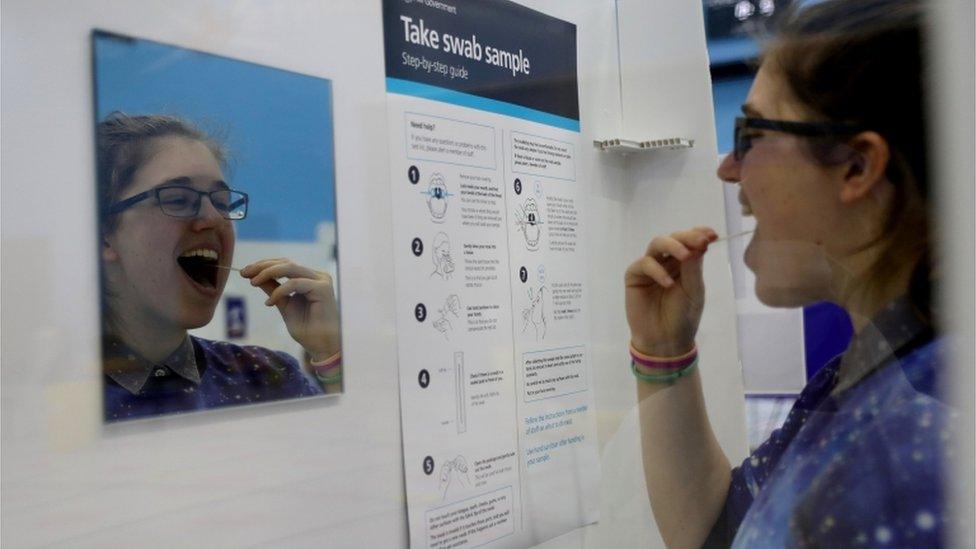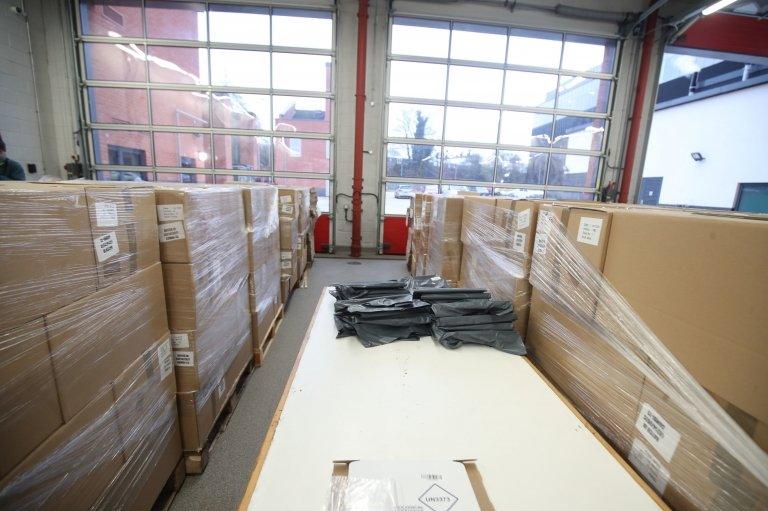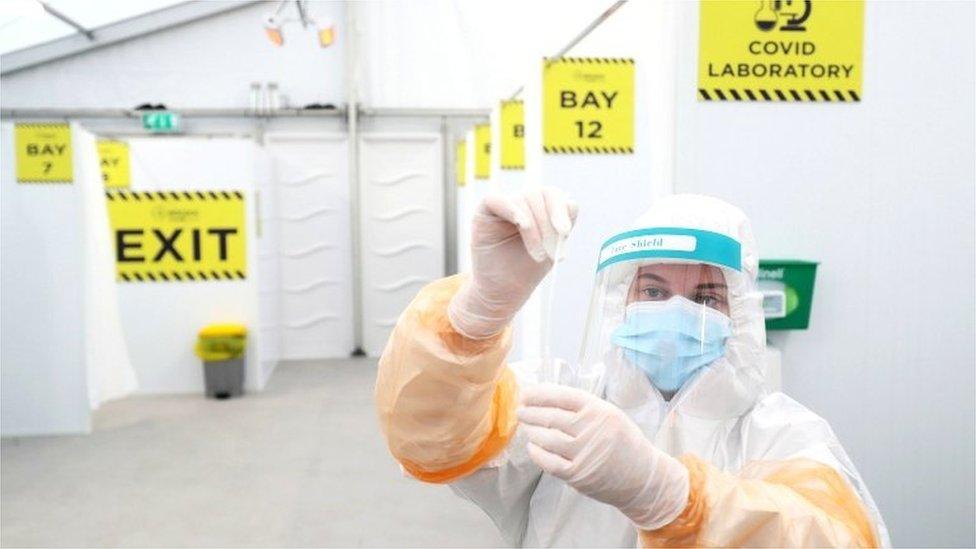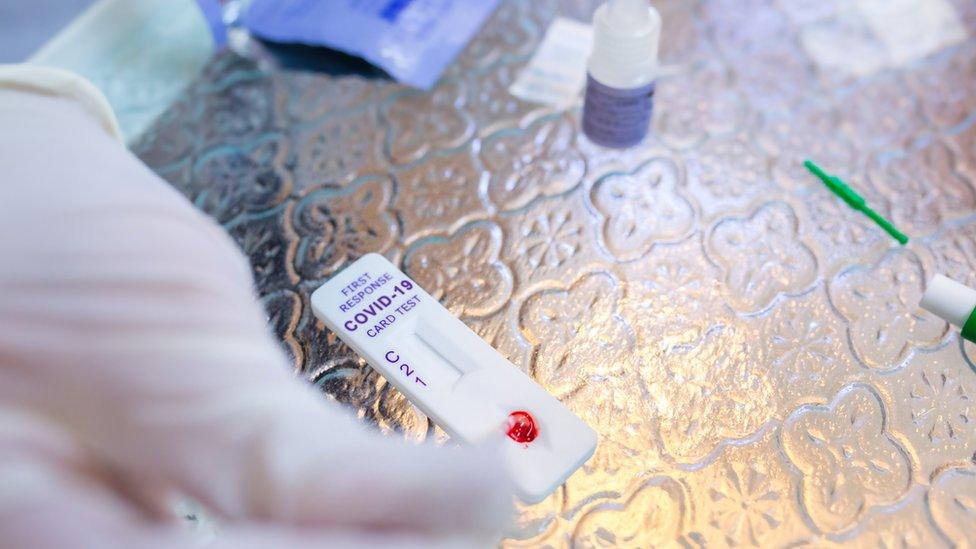Why are some areas getting door-to-door covid tests?
- Published
- comments

A student gives herself a lateral flow test
A huge door-to-door testing mission is getting under way in a bid to find "every single case" of a new coronavirus variant in England.
On-the-spot doorstep tests, home testing kits and mobile testing units will be used to try to reach 80,000 people in eight specific areas.
The efforts are to track down and stop the spread of the more infectious South African variant of the virus.
Variants are a totally normal part of the life of a virus, as it adapts and changes according to conditions. There are several variants of coronavirus already and this version was first recorded in South Africa, but variants have been found here in the UK too.
The health secretary Matt Hancock said he wanted to "come down hard" on the variant and that "finding every case" is the goal, with everyone over 16 in the targeted areas urged to take a test, whether they have symptoms or not.

Large numbers of tests have been delivered to places like this fire station in Surrey to be part of the testing surge
What is the South African variant?
A variant is a different version of a virus - all viruses change and mutate so this is not unusual.
So far thousands of new variants have been found across the world, but health experts are currently focused on versions found in the UK, South Africa and Brazil.
Scientists are studying these mutated versions to understand what makes them different, and whether those differences may make them better at spreading between people, for example, or if it means changes need to be made to the vaccines that have been developed.

So far over 100 cases of the variant have been found which - like the previous versions - are thought to be more contagious, although not more deadly. Eleven of the cases of the South African variant had no link to foreign travel, prompting concerns it is spreading in the community.
Dr Susan Hopkins from Public Health England said the existing vaccines may offer less protection against the South African variant, although they still offer a good level of immunity.
How will the testing work
Matt Hancock: UK "must come down hard" on South Africa variant
In most of the areas, home testing kits are being delivered and collected, while some are also providing mobile testing sites.
In Kent, police, council workers, fire-fighters and other agencies will visit homes to carry out on-the-spot tests of everyone in the household.
Mr Hancock also said it was "absolutely vital" that people in these areas where cases of the variant had been identified minimise all social contact.
Which areas are affected?
Parts of the ME15 postcode area in Kent,
Parts of the WS2 postcode area in Walsall in the West Midlands
Parts of the GU21 postcode area in Woking, Surrey
The CR4 postcode area around Pollards Hill in south London
Tottenham Hale in the N17 area of north London
The W7 area in Hanwell and West Ealing, London
The EN10 postcode area in Broxbourne
Parts of the PR9 area in Southport
Mass testing has previously been used in Liverpool, using lateral flow tests, where more than 200,000 people were tested in November, detecting 800 asymptomatic cases.
The surge testing being deployed in the eight areas where the South Africa variant was detected will, however, offer the more accurate PCR tests to people who need to leave home for work or other essential purposes.
- Published25 January 2021

- Published10 November 2020

